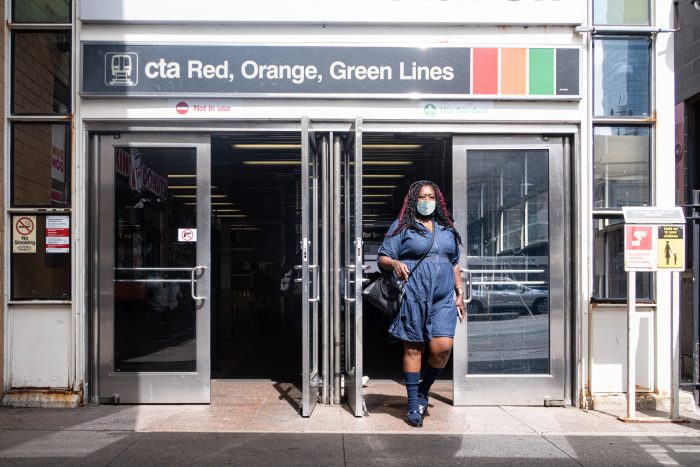As we continue to fight for emergency federal support for Chicago area public transit, Active Trans joined a coalition of advocates calling for our transit agencies to share more information about what will be targeted in cuts if the federal funding doesn’t come through.
Following are excerpts from our coalition’s letter that was submitted to the boards of RTA, CTA, Metra, and Pace during their December budget meetings.
________________________
We are gravely concerned that your proposed budgets ignore the looming transit financial crisis. While we continue to work with you in support of federal funding, it is irresponsible to assume that these funds will become available. Every day brings different news about potential COVID relief legislation, suggesting that the only thing that is certain is that there is no certainty concerning federal aid.
The RTA and the service boards should present budgets that describe the cost-cutting measures that will be necessary if federal relief is unavailable. Such an approach has three advantages.
First, such a budget is honest and prudent. As the COVID pandemic and other crises have taught us, consistent and transparent communication is essential to building trust.
Second, by identifying necessary cuts, the service boards will help build the necessary public support for federal funding. The competition for limited federal funds is vast. Absent widespread public attention to the dire financial situation our transit agencies face, it is unlikely that Congress will prioritize funding for transit.
Third, if Congress ultimately provides anything less than 100 percent of the funds required by our transit agencies, some cuts in service and/or fare increases will be required. By laying out the options now, the public can meaningfully engage with our service boards in prioritizing these cuts.
The approach we suggest is the same one being taken by our peers around the nation. For example:
- The San Francisco Municipal Transportation Authority has proposed a balanced budget, which includes laying off 1,200 workers (22 percent of its workforce) to close a $168 million budget deficit next fiscal year.
- The Washington Metropolitan Area Transit Authority has proposed eliminating weekend service, running Metro trains at 30 minute intervals, closing 19 stations, and eliminating 19 bus routes.
- New York’s Metropolitan Transportation Authority has been outspoken about its need for additional funds to operate their system, publicly describing a need to cut bus service by 40 percent and rail service by 50 percent if no new federal funding is available.
- The Massachusetts Bay Transportation Authority has posted detailed plans for cutting transit service to respond to the budget shortfall and has invited public comment on those proposed plans in a series of public hearings this month.
To be clear, our coalition does not endorse cutting transit service, which is essential to the health of our region and critical to many of its residents. We do, however, call for an open and honest conversation about what cuts will prove necessary should federal relief not materialize.
This open and honest conversation should center on the needs of Chicagoland communities hit hardest by the pandemic. Transit workers and riders are disproportionately Black and Brown — even more so during the COVID pandemic. They’re working essential jobs and relying on transit to get to food and healthcare. Widespread transit cuts and layoffs would leave many of these Chicagoans stranded when they’re most vulnerable.
We stand ready to engage in these difficult discussions about the future of Chicago transit.
- Active Transportation Alliance
- Center for Neighborhood Technology
- Chaddick Institute for Metropolitan Development
- Chicagoland Chamber of Commerce
- Civic Committee of the Commercial Club of Chicago
- Elevated Chicago
- Environmental Law & Policy Center
- Illinois Environmental Council
- Metropolitan Planning Council
- Respiratory Health Association
- Shared Use Mobility Center

